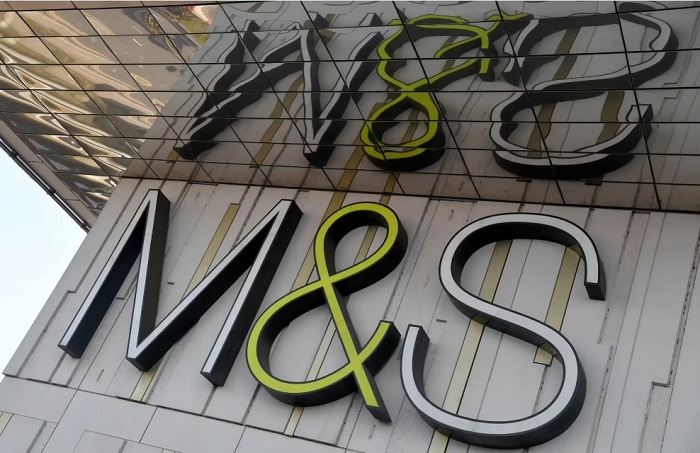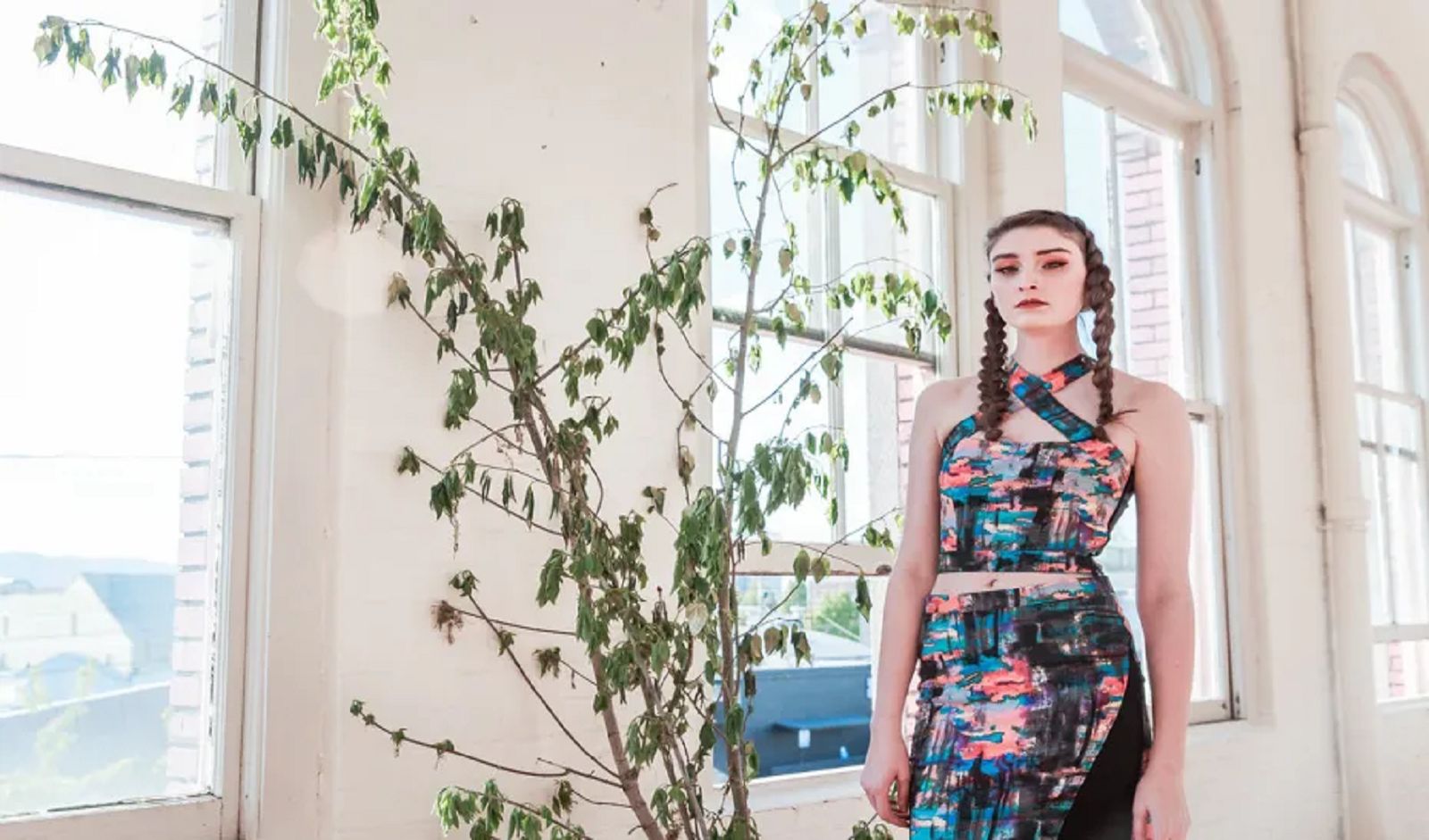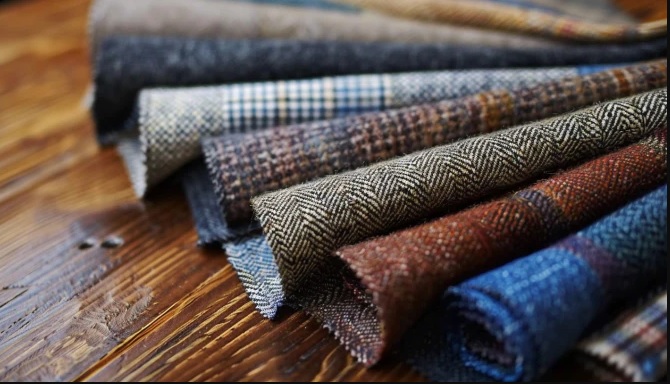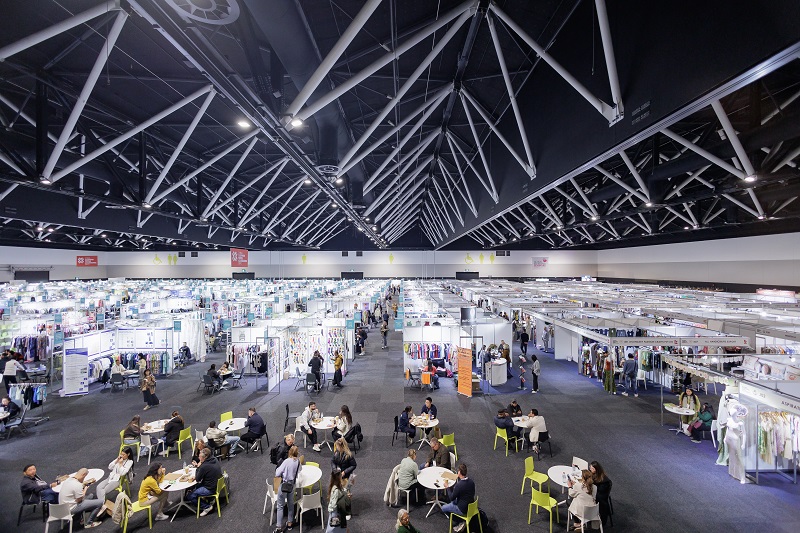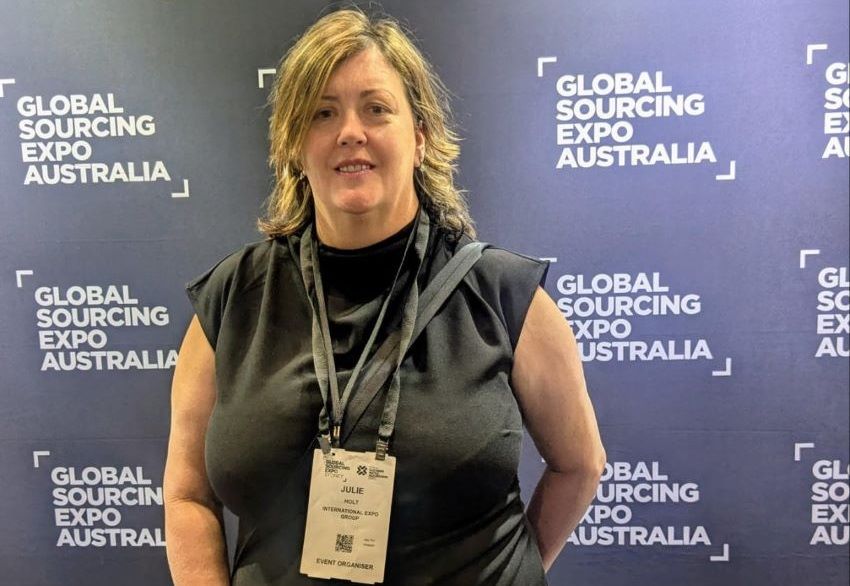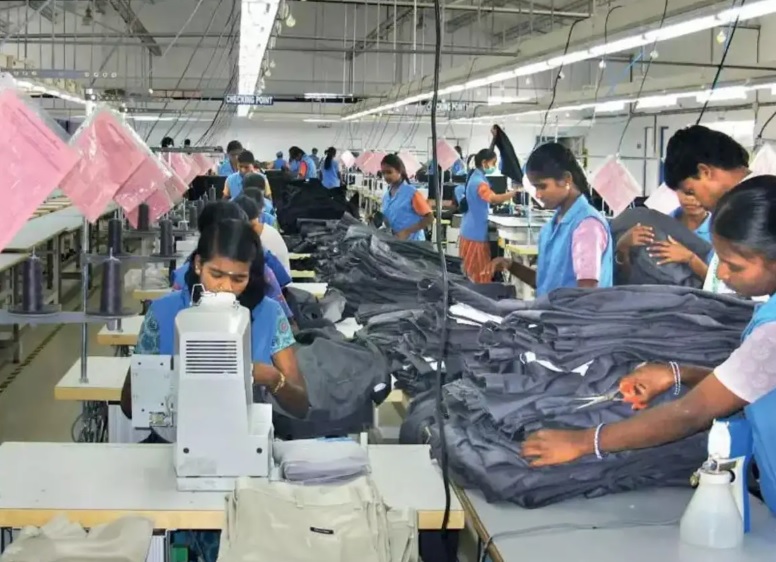FW
Demonstrating a strong performance, Pakistan's textile rose by 17.9 percent to $1.605 billion in Sep 2024as compared to $1.36 billion in the same month last year. Driven by an increase in exports of finished goods, this growth signals a shift in the industry towards exporting value-added products rather than raw materials.
Pakistan’s RMG exports increased by 35 percentduring the month,as per latest figures from the Pakistan Bureau of Statistics (PBS).For the entire fiscal year 2023-24, Pakistan’s textile exports rose by 0.9 per cent to $16.65 billion.
In Sep’24, cotton cloth exports by Pakistan grew 15.33 percent to $201 million while knitwear exports expanded by 29.57 per cent to $448.3 million. The exports of bed wear increased by 24.8 percent to $290.2 million while towel exports grew by 7.35 percent to $90.55 million.Pakistan also recorded a 35 per cent increase in RMG exports to $338.4 million from the previous year. Conversely, exports of unfinished products, especially raw materials, declined sharply. Exports of cotton yarn declined by 54.22 percent to $52 million, while raw cotton exports contracted to zero.
India’s textile exports rose by about 9.56 per centto $1,813.27 million in Sep’24 as against$1,655.06 million registered in Sep’23.
As per an analysis by the Confederation of Indian Textile Industries (CITI), India’s apparel exports grew by17.30 per cent to $1,110.11 million during the month as compared to $946.35 million exports reported in the corresponding period last year.
The cumulative exports of textiles and apparel grew by 12.38 per cent to $2,923.38 million during Sept’24 as against $2,601.41 million in the corresponding month last year.
From Apr-Sept’24, India’s textiles exports grew by 2.76 per centto $10,155.48 million as against $9,882.49 million in the corresponding period last year while Apparel exports grew by 8.51 per centto $7505.14 million from $6916.44 during same period last year.
Cumulative exports of textiles and apparel during Apr-Sept’24 grew by5.13 per cent$17,660.62 million as compared $16,798.93 million in the Apr-Sept’23 period.
Concerned over the fate of the cotton farmers in Gujarat, S Niranjan Reddy, BRS Leader and Former Minister has urged Cotton Corporation of India (CCI) open the cotton purchase centers immediately. He also urged for an extension of the support price given to cotton in Gujarat to Telangana farmers as well.
Telangana farmers have been suffering due to heavy rains in the state, Reddy said. These farmers are struggling to stock their cotton as the State government has failed to set up CCI purchase centers, pushing the farmers into the hands of middlemen, he added. Farmers in the state are being forced to sell their cotton at Rs 5,500 per quintal. They are finding it difficult to get at least the support price of Rs 7,521, he stated further.
In contrast, Gujarat is purchasing cotton at Rs 8,257 per quintal while Telangana farmers get only Rs 7,521. The two central ministers from Telangananeed to ensure that the cotton prices in Gujarat are extended to Telangana also, Reddy affirmed.
The former minister criticised the State government for not taking responsibility for the agricultural sector, which supports 2.5 crore people in the state. The state has not yet implemented the Rythu Bandhu scheme, and farmers are not receiving the promised Rs 500 bonus per quintal for paddy. Additionally, restrictions are being imposed on the quality of paddy to deny farmers their bonus, he notes.
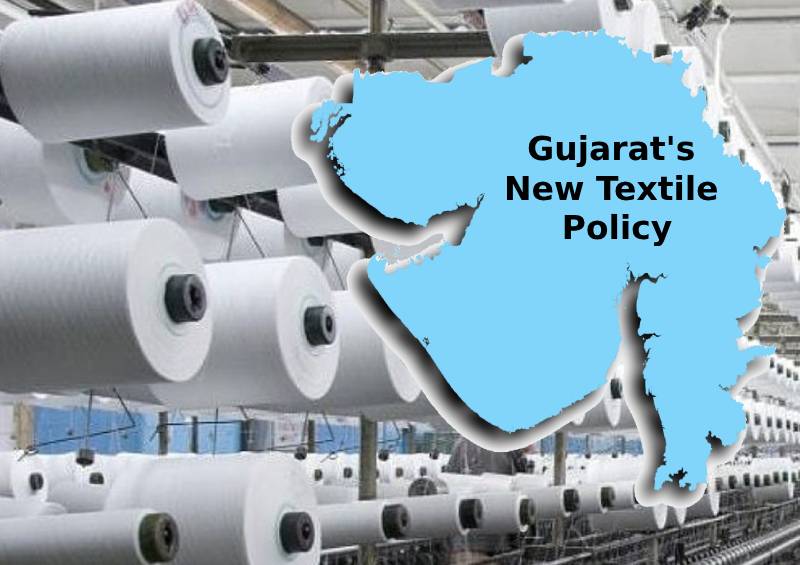
Gujarat has just announced its new textile policy for 2023-28. It promises significant incentives and infrastructure development for the sector. “We expect that the policy will be instrumental in attracting an investment of Rs 30,000 crore in the textile sector. One of the objectives of this policy is to make Gujarat a global hub of the technical textile sector. We also made provisions to ensure higher income for women self-help groups (SHGs) engaged in this sector," said chief minister Bhupendra Patel while unveiling the policy. But how does it stack up against policies in other textile hubs like Tamil Nadu, Maharashtra, and Uttar Pradesh? This analysis delves into the key features of various state textile policies, comparing their strengths and weaknesses, with a particular focus on Gujarat's latest offering.
Focus areas
State textile policies generally focus on several key aspects.
Capital subsidies: Financial assistance for setting up new units or modernizing existing ones.
Power and infrastructure: Subsidized power tariffs and support for developing textile parks and infrastructure.
Technology upgradation: Incentives for adopting new technologies and promoting innovation.
Skill development: Support for training and skill development programs for textile workers.
Marketing and export promotion: Assistance in promoting and marketing textile products in domestic and international markets.
To better understand the various focus areas of state textile policies here is a look at a comparative table of different state textile policies.
Table: Key features of state textile policies
|
Feature |
Gujarat (2023-28) |
Tamil Nadu (2019-24) |
Maharashtra (2018-23) |
Uttar Pradesh (2017-22) |
|
Capital Subsidy |
Up to 20% of eligible fixed capital investment, capped at Rs 7.5 crore |
Up to 25% of eligible fixed capital investment, capped at Rs10 crore |
Up to 25% of eligible fixed capital investment, capped at Rs5 crore |
Up to 25% of eligible fixed capital investment, capped at Rs10 crore |
|
Interest Subsidy |
Up to 7% on term loans for 7 years |
Up to 5% on term loans for 5 years |
Up to 7% on term loans for 7 years |
Up to 7% on term loans for 7 years |
|
Power Tariff Subsidy |
Rs 2 per unit for 5 years |
Rs 1 per unit for 5 years |
Rs 2 per unit for 5 years |
Rs 1 per unit for 5 years |
|
Infrastructure Development |
Dedicated textile parks with plug-and-play facilities |
Textile processing parks with common effluent treatment plants |
Integrated textile parks with common facilities |
Development of textile clusters and infrastructure |
|
Skill Development |
Subsidies for training and skill development programs |
Training programs for textile workers |
Skill development initiatives for the textile sector |
Focus on traditional textile crafts and skill development |
|
Focus Areas |
Technical textiles, man-made fibers, and apparel |
Cotton, silk, and handloom sectors |
Cotton, silk, and powerloom sectors |
Handloom, powerloom, and silk sectors |
How Gujarat's textile policy has an edge
Gujarat's new textile policy aims to build upon its existing strengths and further enhance the state's competitiveness. Some key focus areas are:
Emphasis on Man-Made Fiber (MMF) and technical textiles: Recognizing the growing demand for these segments, the policy offers higher capital subsidies and incentives for investments in MMF and technical textiles.
Focus on circularity and sustainability: Promoting sustainable practices and circular economy principles in the textile industry.
Enhanced support for Technology Upgradation: Increased emphasis on Industry 4.0 technologies, automation, and innovation.
Mega textile parks: Development of world-class infrastructure and facilities to attract large-scale investments.
A comparative analysis of Gujarat with other states reveals, Gujarat offers a higher capital subsidy compared to Maharashtra and Tamil Nadu, making it more attractive for large investments. The policy emphasizes technical textiles and man-made fibers, aligning with the industry's future growth areas. It provides more attractive incentives for these high-growth segments. Also, aligning with global trends, the policy promotes sustainable practices and resource efficiency, giving Gujarat an edge. And creating dedicated zones with world-class infrastructure can attract significant investments and boost exports.
However, certain areas still need more emphasis. Gujarat's power tariff subsidy is lower than Maharashtra, it could be a disadvantage for power-intensive textile units. Moreover, while the policy mentions skill development, it lacks specific details on the scope and implementation of training programs.
The Gujarat Chamber of Commerce and Industry (GCCI) has praised the government’s policy which focuses on fostering new industrial units expected to generate substantial employment opportunities. Indeed, Gujarat's new textile policy has the potential to significantly accelerate the growth of the state's textile industry. By focusing on high-growth segments, technology, and sustainability, the policy aims to create a globally competitive and future-ready textile sector. Successful implementation will depend on factors such as effective governance, ease of doing business, and availability of skilled labor.
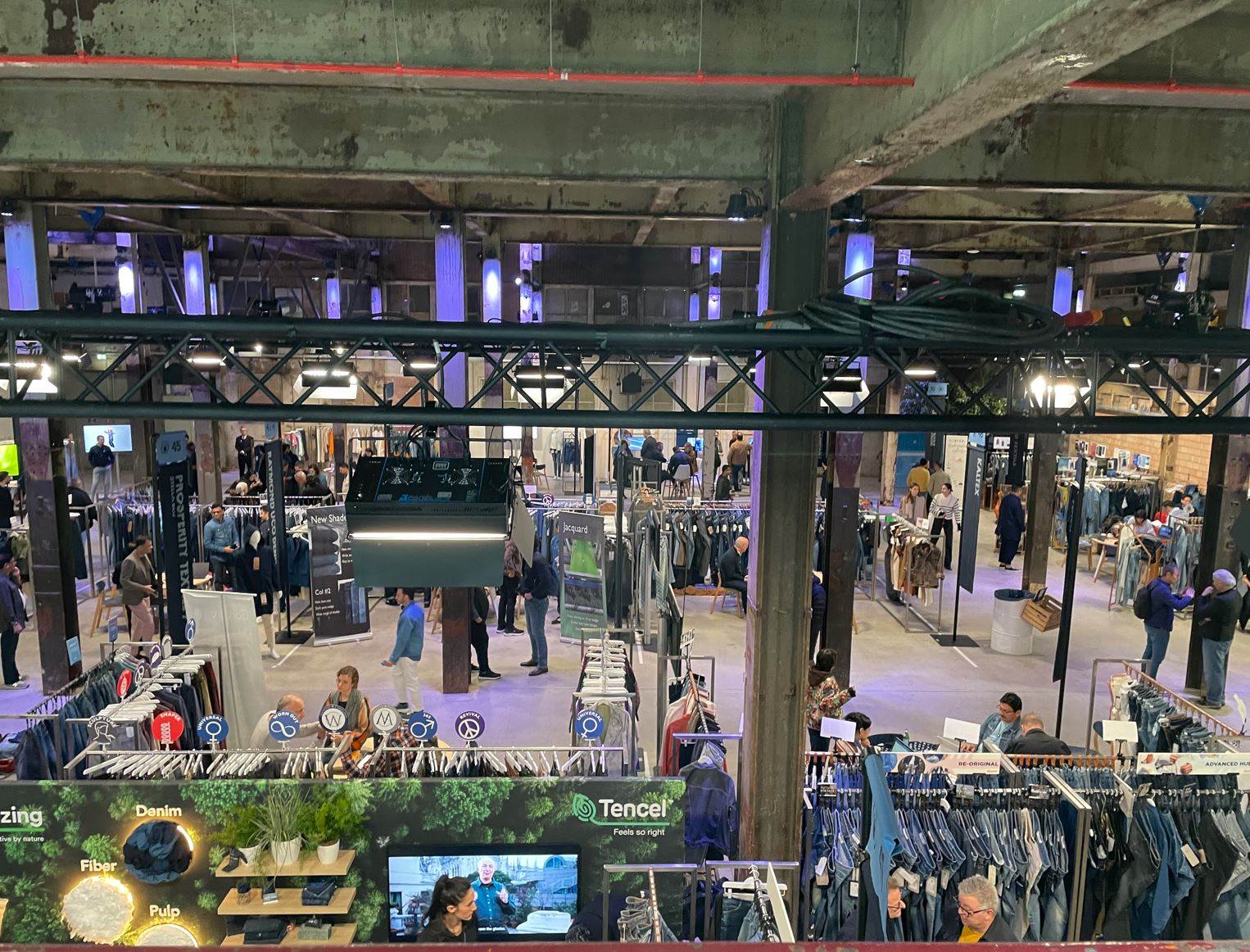
Kingpins Show, the premier denim sourcing event, is gearing up to celebrate its 10th anniversary in Amsterdam with a two-day extravaganza on October 23-24 at the Sugar Factory. This edition will have a revamped layout, with all exhibitors centrally located on the main floor and the Green Area on the second floor transformed into a hub for education, collaboration, and community. This area will host ‘Denim Talks’ seminars, interactive workshops, and food stations.
"Kingpins is not just a trade show, we are also a community," said Vivian Wang, Director & Global Sales Manager, Kingpins in an interview to The spin-off.com. "Over the course of two days, the denim industry will gather at Kingpins to conduct business, learn about new products and practices, connect with old friends and make new ones, and share ideas."
Founded in New York in 2004, Kingpins Show is an invitation-only denim sourcing event that connects industry insiders with leading mills, manufacturers, and innovators. The show is known for its curated selection of exhibitors, commitment to sustainability, and focus on fostering a strong denim community.
Anniversary highlights
Pop-up fashion show: The opening night party will feature denim designs by Kingpins exhibitors, this show will debut in Amsterdam after successful runs in China and New York. It will showcase denim creations from various exhibitors,. Attendees can expect other exciting surprises throughout the evening.
Interactive workshops: Panther Denim and Shuise will host a natural indigo dyeing workshop led by dye master Professor Wang.
The boxes: This area will showcase innovative collaborations like Mushroom Rodeo, a partnership between AGI Denim and Ecovative that combines denim fabrics with mushroom leather.
Future fit forum: Exploring the evolution of denim fit.
Lil denim jeans: Highlighting the next generation of denim creatives.
Arvind Indigo Museum: Returning with original artwork, including a piece by Based Upon called ‘Indigo Fragmented Crack’.
Giant jeans photobooth: Featuring supersized jeans and jackets made from hemp and Re-Gen cotton.
Kingpins Amsterdam will continue its focus on sustainable innovation with initiatives like One Denim, MSP, and Future Fit Forum. New seminars, including Creative Washes Past & Future and Innovative Materials From Lab to Loom, will explore advancements in raw materials and finishing techniques.
While Kingpins has no immediate plans to expand to new countries, the organization is exploring opportunities in Latin America and will host a pop-up event in Hong Kong in November. "We are always looking at shifts in the denim market and speaking with the community," says Wang. "We don’t rule out the possibility of bringing the Kingpins experience to a new region."
Organised by the Ministry of Economic Affairs’ Department of Industrial Technology, the Taipei Innovative Textile Application (TITAS) showcased around 40 sustainable textile technologies and high-performance products.
Held from Oct 15-17, 2024 at the Taipei Nangang Exhibition Center, the tradeshow was attended by 400 exhibitors from across the world.
The event highlighted R&D capabilities of the textile industry and their potential applications in diverse sectors. The DoIT pavilion at the exhibition showcased innovations by the Footwear and Recreation Technology Research Institute in Taichung City, Taiwan; Industrial Technology Research Institute in Hsinchu; Taiwan Textile Federation in Taipei and Taiwan Textile Research Institute in New Taipei City. .
One of the highlights of the tradeshow was the ‘e-MooDress’ produced by TTRI and Hsinchu City-based E Ink Holdings Inc. This garment combines the company’s electronic paper tech with stretchable fibers and pulse sensors, enabling it to change colors and patterns according to the wearer’s heartbeat or environment. According to MOEA, the garment demonstrates the integration of fashion and technology.
Another impressive product on display at the exhibition was the somatosensory interactive device developed by TTRI, Tai Lung Capital Inc. in Taipei and Zentan Technology Co. in New Taipei City. Using precise motion detection and smart sensing technology, the device provides real-time feedback to assist in rehabilitation for older adults, says the ministry.
Forecasts by the US-based Goldstein Research indicate, the global smart clothing market will reach a value of $1.175 billion by 2025, says Chou Chung-pin, DoIT. The Ministry continues to expand its R&D facilities in sensing technology and Internet of Things wearables as international demand for health monitoring and functional enhancement increases in the medical and sports fields, he adds
Jeanologia is celebrating 25 years of its pioneering laser technology at Kingpins Amsterdam with a special capsule collection that blends traditional denim with modern innovations. Coinciding with Kingpins’ 10th anniversary in Amsterdam and 20th globally, the event highlights laser technology’s transformative impact through a visual installation that showcases a quarter-century of progress.
Since the launch of its first laser in 1999, Jeanologia has revolutionized the textile industry by eliminating harmful practices like sandblasting. Today, its laser technology is used in 50 per cent of global denim production, enhancing sustainability, quality, and efficiency for manufacturers and fashion brands alike.
The capsule collection presented at the event showcases how Jeanologia has seamlessly integrated laser technology into denim’s heritage. The garments feature iconic vintage effects such as stone washing, worn-out looks, and rips, achieved through advanced tools like the ‘Light Ripper’ and ‘Light Scrapper.’ This ‘old new designs’ collection merges the past and future of denim, symbolizing continuous innovation and sustainability.
Jeanologia’s anniversary celebration also includes a digital capsule collection with 25 designs, allowing visitors to experience the creative potential of laser technology through eDesigner software. Attendees can create and take home digital garments to be produced sustainably anywhere in the world.
Fernando Cardona, Jeanologia's Head of Brainbox, emphasized the role of laser technology in fostering sustainable production and creativity. The company’s technological innovations, such as G2 ozone, e-flow, and ColorBox, continue to reshape the textile industry by reducing environmental impact, water, and chemical usage.
Jeanologia’s 25year journey reflects its commitment to a greener future, honoring the global ‘denim tribe’ of brands and manufacturers who have adopted these technologies for a more sustainable fashion industry.
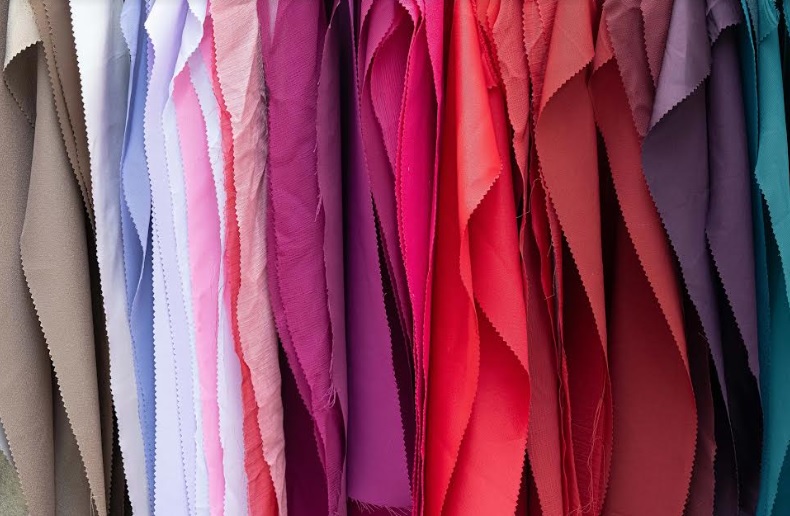
Texworld Apparel Sourcing Paris will return to the Paris-Le-Bourget exhibition centre from February 10 to 12, 2025. This event promises to be a significant gathering for international buyers and suppliers as they seek to design and develop Spring-Summer 2026 fashion collections. With high booking levels already indicating strong interest, Messe Frankfurt France anticipates a bustling event.
Venue transformation and layout enhancements
Halls 3 and 4 of the Paris-Le-Bourget exhibition centre will host the event, showcasing a completely renovated Hall 3, designed for the recent Olympic Games. The new layout will enhance the coherence of product offerings, allowing for improved synergies between materials and finished goods. Hall 4 will focus on a women’s wardrobe, while Hall 3 will feature a dedicated space for outdoor, sportswear, and casual wear. Additionally, all essential services, including a trends forum, dining options, and the Agora for conferences and discussions, will be consolidated in Hall 2. This new organization aims to streamline the sourcing process for buyers, providing them with comprehensive solutions.
This edition underscores the importance of European markets in the fashion sector, spanning ready-to-wear to luxury segments. The event will host exhibitors from leading sourcing nations such as China, Turkiye (with support from the Istanbul Chamber of Commerce), India, Korea, Indonesia, Pakistan, Thailand, and Bangladesh. Despite challenging political climates, these countries remain steadfast in their participation. Notably, Texworld will continue to highlight yarn sourcing through the Yarn Expo pavilion, showcasing the expertise of prominent spinning companies and reinforcing the value of the upstream sector.
Meeting evolving market demands
Messe Frankfurt France is tailoring the trade show experience to meet the changing demands of the fashion and apparel markets. Julien Schmoll, the Marketing and Communications Director, notes that buyers, brand managers, and designers are increasingly seeking partners who can address sustainable development objectives. The event will showcase suppliers capable of offering high-quality, creative products in various quantities at competitive prices, particularly important for mid-range items.
The Texpertise Econogy initiative will play a pivotal role in highlighting sustainability within the textile sector. The Econogy Finder, available online and via a mobile app, will help buyers locate suppliers of sustainably produced textiles. The Econogy Talks will facilitate discussions around sustainability, featuring several round tables in the Agora located in Hall 2. Additionally, Econogy Tours will return on February 10 and 11, led by specialists to explore sustainable offerings.
Future editions and calendar changes
Looking ahead, Texworld Apparel Sourcing Paris has shifted the dates for its Autumn-Winter 2025-2026 edition to September 15-17, 2025. This rescheduling aligns the event with creative cycles, ensuring sourcing and orders are timed closely with collection development. Alongside Texworld, key sectors such as Avantex and Leather world will also feature in this edition, further enriching the event's offerings.
Texworld Apparel Sourcing Paris promises to be a landmark event for the fashion industry, focusing on sustainable practices and innovative sourcing solutions. With enhanced venue layouts and a strong lineup of exhibitors, this event is set to redefine how buyers connect with suppliers in the evolving landscape of fashion and textiles. The combination of traditional sourcing and a commitment to sustainability underscores the industry's shift towards responsible production, making Texworld a must-attend event for anyone in the fashion business.
Archroma, a global leader in sustainable specialty chemicals, is set to showcase its latest innovations at Performance Days 2024 in Munich, focused on functional fabrics. The event, running from October 23-24, will highlight Archroma’s commitment to combining functionality, aesthetics, and sustainability in the sportswear, athleisure, and workwear sectors.
Lee Howarth, Director of Strategic Marketing & Brand Engagement at Archroma, emphasized the importance of adopting cleaner chemistries that enhance product performance, factory productivity, and environmental impact. The company will introduce its ‘Planet Conscious+’ concept, a six-dimensional roadmap supporting brands and mills in their sustainability journeys.
Featured innovations include Archroma’s Eriofast reactive dyes for polyamide blends, Terasil W/WW disperse dyes for polyester, and Avitera SE dyes for cellulosic fibers. The patented Earth Colors technology, transforming food and agricultural waste into high-performance dyes, will also be on display.
Additionally, Archroma will present its fluorine-free water repellents, odor-neutralizing solutions, and the coldblack finishing technology for UV protection and cooling, alongside Power Cotton for increased cotton durability.
Performance Days 2024 expects around 3,000 visitors and over 530 global suppliers, with Archroma at Booth T16 in Hall A2, Messe Munchen.
The Hong Kong Polytechnic University School of Design (PolyU Design) is hosting an exhibition, ‘Time-capsuled Histories: Six Decades of PolyU Design,’ until 11 November 2024, marking its 60th anniversary. The exhibition highlights PolyU Design’s contribution to design education in Hong Kong and globally.
Divided into five sections, the exhibition covers the School’s leadership evolution, curriculum, research development, alumni works, and publications. Notable works from graduates between 1973 and 2023 are featured, including projects ranging from wet market-inspired art to eco-friendly product designs.
Commissioned by Dean Kun-Pyo Lee, the exhibition was curated by a research team that spent over a year gathering artefacts from alumni and staff. A comprehensive timeline maps PolyU Design’s growth from its origins in Hong Kong Technical College to its present standing, reflecting key changes in industry trends and technology.
The exhibition highlights the role of design education in Hong Kong’s social and economic development. A key event is the ‘Time-Capsuling: The Untold Journeys of PolyU Design’ sharing session, led by former Associate Dean SIU King Chung, alongside alumni.
Open to the public, this exhibition celebrates PolyU Design's journey and its lasting influence on Hong Kong’s creative landscape.

